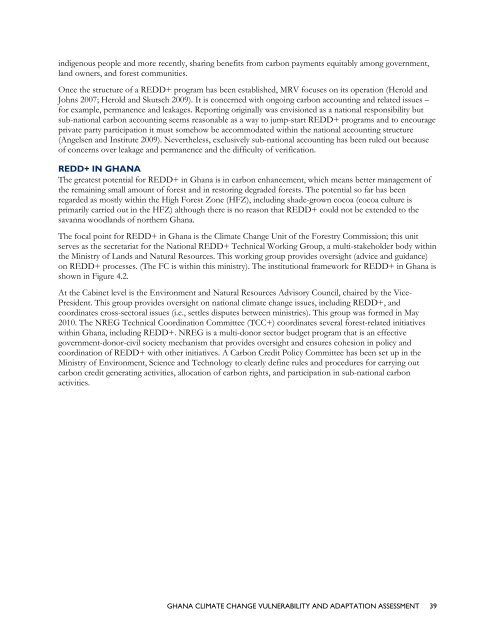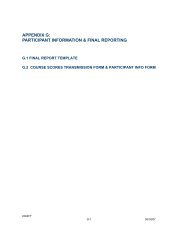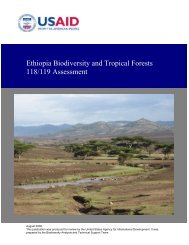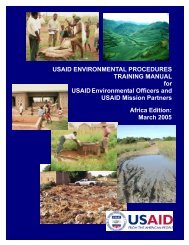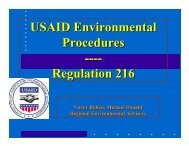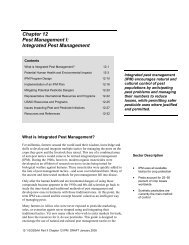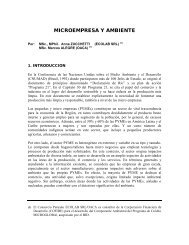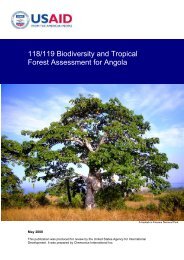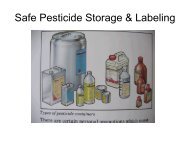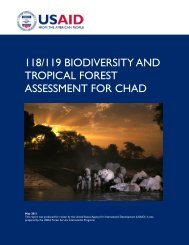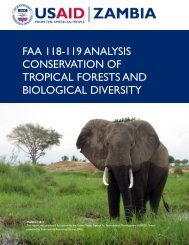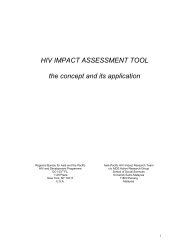ghana climate change vulnerability and adaptation assessment
ghana climate change vulnerability and adaptation assessment
ghana climate change vulnerability and adaptation assessment
- No tags were found...
Create successful ePaper yourself
Turn your PDF publications into a flip-book with our unique Google optimized e-Paper software.
indigenous people <strong>and</strong> more recently, sharing benefits from carbon payments equitably among government,l<strong>and</strong> owners, <strong>and</strong> forest communities.Once the structure of a REDD+ program has been established, MRV focuses on its operation (Herold <strong>and</strong>Johns 2007; Herold <strong>and</strong> Skutsch 2009). It is concerned with ongoing carbon accounting <strong>and</strong> related issues –for example, permanence <strong>and</strong> leakages. Reporting originally was envisioned as a national responsibility butsub-national carbon accounting seems reasonable as a way to jump-start REDD+ programs <strong>and</strong> to encourageprivate party participation it must somehow be accommodated within the national accounting structure(Angelsen <strong>and</strong> Institute 2009). Nevertheless, exclusively sub-national accounting has been ruled out becauseof concerns over leakage <strong>and</strong> permanence <strong>and</strong> the difficulty of verification.REDD+ IN GHANAThe greatest potential for REDD+ in Ghana is in carbon enhancement, which means better management ofthe remaining small amount of forest <strong>and</strong> in restoring degraded forests. The potential so far has beenregarded as mostly within the High Forest Zone (HFZ), including shade-grown cocoa (cocoa culture isprimarily carried out in the HFZ) although there is no reason that REDD+ could not be extended to thesavanna woodl<strong>and</strong>s of northern Ghana.The focal point for REDD+ in Ghana is the Climate Change Unit of the Forestry Commission; this unitserves as the secretariat for the National REDD+ Technical Working Group, a multi-stakeholder body withinthe Ministry of L<strong>and</strong>s <strong>and</strong> Natural Resources. This working group provides oversight (advice <strong>and</strong> guidance)on REDD+ processes. (The FC is within this ministry). The institutional framework for REDD+ in Ghana isshown in Figure 4.2.At the Cabinet level is the Environment <strong>and</strong> Natural Resources Advisory Council, chaired by the Vice-President. This group provides oversight on national <strong>climate</strong> <strong>change</strong> issues, including REDD+, <strong>and</strong>coordinates cross-sectoral issues (i.e., settles disputes between ministries). This group was formed in May2010. The NREG Technical Coordination Committee (TCC+) coordinates several forest-related initiativeswithin Ghana, including REDD+. NREG is a multi-donor sector budget program that is an effectivegovernment-donor-civil society mechanism that provides oversight <strong>and</strong> ensures cohesion in policy <strong>and</strong>coordination of REDD+ with other initiatives. A Carbon Credit Policy Committee has been set up in theMinistry of Environment, Science <strong>and</strong> Technology to clearly define rules <strong>and</strong> procedures for carrying outcarbon credit generating activities, allocation of carbon rights, <strong>and</strong> participation in sub-national carbonactivities.GHANA CLIMATE CHANGE VULNERABILITY AND ADAPTATION ASSESSMENT 39


